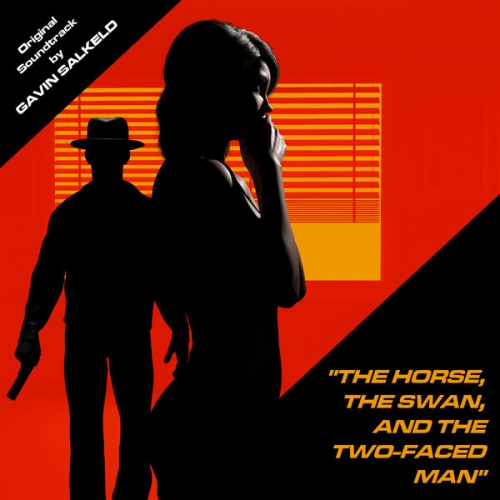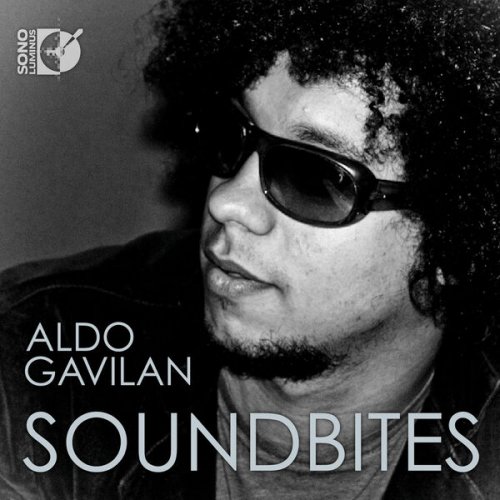An Danzza - The Claws of Dawn (2018)
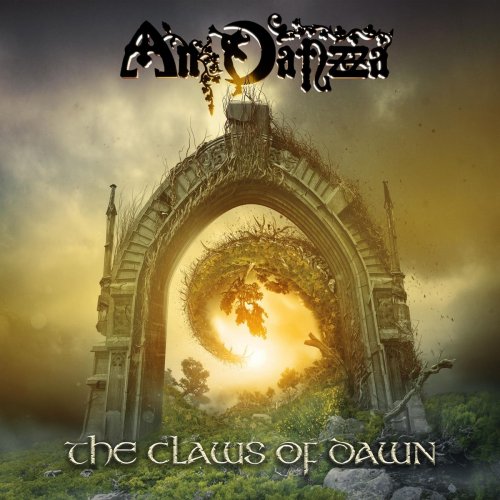
Artist: An Danzza
Title: The Claws of Dawn
Year Of Release: 2018
Label: An Danzza
Genre: Folk, Celtic
Quality: Mp3 320 kbps / FLAC (tracks)
Total Time: 72:40 min
Total Size: 166 / 487 MB
WebSite: Album Preview
Tracklist:Title: The Claws of Dawn
Year Of Release: 2018
Label: An Danzza
Genre: Folk, Celtic
Quality: Mp3 320 kbps / FLAC (tracks)
Total Time: 72:40 min
Total Size: 166 / 487 MB
WebSite: Album Preview
1. Beltane
2. O Fortuna
3. From the Afterlife
4. El Árbol Del Ahorcado
5. Non Omnis Moriar
6. Lacrimosa
7. Endless Night
8. Morning Star
9. The Butterfly
10. To My Fairy Fancies
11. Gjallarhorn
12. Desert Wind
13. The Jester
14. El Sol Y La Luna
15. Melting
1. Beltane (Music: Andrés Campuzano. Lyrics: Haydée Mariñoso)
Our vision of the pagan festival of Beltane, within a love context. Cheerful music in the first single from the album, for which we have also shot a videoclip. There is a small introduction, where the music seems to approach slowly, (8d technique) and represents the spirit of the party coming to the place. It features a large number of instruments, including highlights such as the hammered dulcimer and the bagpipe.
2. O Fortuna (Music: Andrés Campuzano. Lyrics: Traditional)
Mythological song based on an ancient medieval Latin poem dedicated to the Roman goddess of luck. This track features the carnyx, a wind instrument of the iron age celts, used between c. 200 BC and c. AD 200. Entrancing symphonic choirs are also present.
3. From the Afterlife (Music: Andrés Campuzano. Lyrics: Haydée Mariñoso)
We enter the darkness with this song that tells a terrible tale of broken hearts. The love is moving between two worlds, life and death. It has a dark and pagan folk sound. The melody takes place solemnly and plays with dissonances (second and fourth intervals). It also has a chorus with an inverted seventh and an intense a cappella ending.
4. El Árbol del Ahorcado (Music and Lyrics: Andrés Campuzano)
Powerful song written in Spanish with an epic and tender theme at the same time. It narrates the paradox between courage and ingenuity, an innocent child and a cursed tree. The song rides to the rhythm of a celtic reel with a hellish instrumental interlude, which can break the fingers of many musicians.
5. Non Omnis Moriar (Music: Andrés Campuzano and Jaime Sanz)
Disturbing instrumental theme with the oboe as protagonist. Some people survive in the memory of others, that is why "Don't die eternally." (the meaning of this track’s Latin title). Authentic death ensues when people forget about the people who have lived. The beginning is a dark funerary ritual, which gradually becomes majestic with the introduction and progressions of the oboe. The ending is abrupt and represents the moment of death.
6. Lacrimosa (Music and Lyrics: Andrés Campuzano)
This is a vegan song. A forest spirit protects the life of all the creatures that live there, but sometimes his magic can not prevent the unfortunate murder of innocent animals by cruel hunters. Only the revenge and the protection of the young remain. The song is very rich in ethnic instruments variety. It rides with a continuous cadence but it moves us into the darkness with some sudden minor chords without tonal relation to return to some sad melodies, and then fly to a beautiful passage of uilleann pipe.
7. Endless Night (Music: Andrés Campuzano. Lyrics: Haydée Mariñoso)
It is an energetic song with many percussion elements. The fusion of sounds of the world is striking. Among all, the crumhorn, a musical instrument of the woodwind family used during the Renaissance period, stands out in a crusty way. The song is in minor mode and walks through exotic arabesque scales at the end. The lyrics are dreamlike and move us to a magical place.
8. Morning Star (Music and Lyrics: Andrés Campuzano)
The morning star, called "lucero del alba" in Spanish, is a popular name to refer to the planet Venus, when it is visible in the sky at dawn. The term has poetic and mystical connotations. The lyrics are very metaphoric and have different meanings. It is an allegory of light and hope. It is also an invitation to the contemplation of nature. Stop and listen. But it also speaks of loneliness and the immensity of the world. It is one of the most epic songs on the album. It has a beautiful chorus with harmonization of three female voices and whispers close to your ear.
9. The Butterfly (Music: Traditional)
This is a traditional Irish tune with a very magical melody, also known as Barney’s Goat, The Bug, The Butterfly Gig, Eitil Im, Fiona, Im Ag Eitilt, Kick The Peeler, The Red Admiral Butterfly, The Red Monarch Butterfly… The tune rides to the rhythm of a Slip Jig, which is characterized by having 9-beat measures. It is very commonly used in Celtic dances.
10. To My Fairy Fancies (Music: Andrés Campuzano. Lyrics: Sarojini Naidu)
It is the funniest song in the album. We are in the world of fantasy. It is based on a poem by Sarojini Naidu, an Indian independence activist and poet. The song changes from minor to major mode with augmented fifth chord several times in a crazy way. It has a bagpipe theme with bretone touches, accompanied at all times by a jaw harp. It features a female soprano voice making over-acute notes. Some faerie creatures come to meet us in the instrumental interlude.
11. Giallarhorn (Music: Andrés Campuzano)
The most enveloping theme of the album. Ambiental music inspired by Viking mythology. Gjallarhorn (old Norse: “Yelling horn” or “The loud sounding horn”) is the horn with which Heimdal, guardian of Asgard, will announce the Ragnarök, the battle of the end of the World. The main feature of this theme is its time signature of 7/8. It is an irregular rhythm that represents that the earthly world of the Vikings is breaking. Here we can clearly hear the Nyckelharpa, a traditional Swedish musical instrument.
12. Desert Wind (Music and Lyrics: Andrés Campuzano)
Now we travel to some desert in the oriental world, to find ourselves with an existentialist song with exotic scales, and with an incredible variety of Persian and Turkish instruments. This song is about someone who travels in search of the truth. A philosopher who never stops thinking and being curious. But sometimes we think further and do not observe the life that we have before our eyes. A noble old wise man will give him the answers he needs.
13. The Jester (Music and Lyrics: Andrés Campuzano)
A song with Renaissance touches, that moves between happiness and sadness. It tells the story of a sad jester. A street artist who has lost everything he had, love, money and honor. Even so, he always has a smile for the audience. Although he does not always find a friendly public. It has a catchy chorus and a small organ solo among the sounds of the harpsichord and the baroque trumpets.
14. El Sol y la Luna (Music and Lyrics: Andrés Campuzano)
Another song in Spanish. It is a ballad that tells the story of an impossible love. They love each other but only meet in dreams, just as the Sun and the Moon are at the time of the eclipse. Maybe it's too late when they get together and fly. The song is a male/female duo and it is a fusion between medieval sounds and new age.
15. Melting (Music: Andrés Campuzano. Lyrics: Haydée Mariñoso)
The song that closes the album, which is also the most intense. It begins with a majestic uilleann pipe intro. The track then advances on a ternary rhythm, to slowly get to the climax of the album with the band of highland bagpipes and apotheosical choruses which make a foundation for the soprano voice. It's a song of hope that talks about the cycles of life where it is not known if there will be an end.
Our vision of the pagan festival of Beltane, within a love context. Cheerful music in the first single from the album, for which we have also shot a videoclip. There is a small introduction, where the music seems to approach slowly, (8d technique) and represents the spirit of the party coming to the place. It features a large number of instruments, including highlights such as the hammered dulcimer and the bagpipe.
2. O Fortuna (Music: Andrés Campuzano. Lyrics: Traditional)
Mythological song based on an ancient medieval Latin poem dedicated to the Roman goddess of luck. This track features the carnyx, a wind instrument of the iron age celts, used between c. 200 BC and c. AD 200. Entrancing symphonic choirs are also present.
3. From the Afterlife (Music: Andrés Campuzano. Lyrics: Haydée Mariñoso)
We enter the darkness with this song that tells a terrible tale of broken hearts. The love is moving between two worlds, life and death. It has a dark and pagan folk sound. The melody takes place solemnly and plays with dissonances (second and fourth intervals). It also has a chorus with an inverted seventh and an intense a cappella ending.
4. El Árbol del Ahorcado (Music and Lyrics: Andrés Campuzano)
Powerful song written in Spanish with an epic and tender theme at the same time. It narrates the paradox between courage and ingenuity, an innocent child and a cursed tree. The song rides to the rhythm of a celtic reel with a hellish instrumental interlude, which can break the fingers of many musicians.
5. Non Omnis Moriar (Music: Andrés Campuzano and Jaime Sanz)
Disturbing instrumental theme with the oboe as protagonist. Some people survive in the memory of others, that is why "Don't die eternally." (the meaning of this track’s Latin title). Authentic death ensues when people forget about the people who have lived. The beginning is a dark funerary ritual, which gradually becomes majestic with the introduction and progressions of the oboe. The ending is abrupt and represents the moment of death.
6. Lacrimosa (Music and Lyrics: Andrés Campuzano)
This is a vegan song. A forest spirit protects the life of all the creatures that live there, but sometimes his magic can not prevent the unfortunate murder of innocent animals by cruel hunters. Only the revenge and the protection of the young remain. The song is very rich in ethnic instruments variety. It rides with a continuous cadence but it moves us into the darkness with some sudden minor chords without tonal relation to return to some sad melodies, and then fly to a beautiful passage of uilleann pipe.
7. Endless Night (Music: Andrés Campuzano. Lyrics: Haydée Mariñoso)
It is an energetic song with many percussion elements. The fusion of sounds of the world is striking. Among all, the crumhorn, a musical instrument of the woodwind family used during the Renaissance period, stands out in a crusty way. The song is in minor mode and walks through exotic arabesque scales at the end. The lyrics are dreamlike and move us to a magical place.
8. Morning Star (Music and Lyrics: Andrés Campuzano)
The morning star, called "lucero del alba" in Spanish, is a popular name to refer to the planet Venus, when it is visible in the sky at dawn. The term has poetic and mystical connotations. The lyrics are very metaphoric and have different meanings. It is an allegory of light and hope. It is also an invitation to the contemplation of nature. Stop and listen. But it also speaks of loneliness and the immensity of the world. It is one of the most epic songs on the album. It has a beautiful chorus with harmonization of three female voices and whispers close to your ear.
9. The Butterfly (Music: Traditional)
This is a traditional Irish tune with a very magical melody, also known as Barney’s Goat, The Bug, The Butterfly Gig, Eitil Im, Fiona, Im Ag Eitilt, Kick The Peeler, The Red Admiral Butterfly, The Red Monarch Butterfly… The tune rides to the rhythm of a Slip Jig, which is characterized by having 9-beat measures. It is very commonly used in Celtic dances.
10. To My Fairy Fancies (Music: Andrés Campuzano. Lyrics: Sarojini Naidu)
It is the funniest song in the album. We are in the world of fantasy. It is based on a poem by Sarojini Naidu, an Indian independence activist and poet. The song changes from minor to major mode with augmented fifth chord several times in a crazy way. It has a bagpipe theme with bretone touches, accompanied at all times by a jaw harp. It features a female soprano voice making over-acute notes. Some faerie creatures come to meet us in the instrumental interlude.
11. Giallarhorn (Music: Andrés Campuzano)
The most enveloping theme of the album. Ambiental music inspired by Viking mythology. Gjallarhorn (old Norse: “Yelling horn” or “The loud sounding horn”) is the horn with which Heimdal, guardian of Asgard, will announce the Ragnarök, the battle of the end of the World. The main feature of this theme is its time signature of 7/8. It is an irregular rhythm that represents that the earthly world of the Vikings is breaking. Here we can clearly hear the Nyckelharpa, a traditional Swedish musical instrument.
12. Desert Wind (Music and Lyrics: Andrés Campuzano)
Now we travel to some desert in the oriental world, to find ourselves with an existentialist song with exotic scales, and with an incredible variety of Persian and Turkish instruments. This song is about someone who travels in search of the truth. A philosopher who never stops thinking and being curious. But sometimes we think further and do not observe the life that we have before our eyes. A noble old wise man will give him the answers he needs.
13. The Jester (Music and Lyrics: Andrés Campuzano)
A song with Renaissance touches, that moves between happiness and sadness. It tells the story of a sad jester. A street artist who has lost everything he had, love, money and honor. Even so, he always has a smile for the audience. Although he does not always find a friendly public. It has a catchy chorus and a small organ solo among the sounds of the harpsichord and the baroque trumpets.
14. El Sol y la Luna (Music and Lyrics: Andrés Campuzano)
Another song in Spanish. It is a ballad that tells the story of an impossible love. They love each other but only meet in dreams, just as the Sun and the Moon are at the time of the eclipse. Maybe it's too late when they get together and fly. The song is a male/female duo and it is a fusion between medieval sounds and new age.
15. Melting (Music: Andrés Campuzano. Lyrics: Haydée Mariñoso)
The song that closes the album, which is also the most intense. It begins with a majestic uilleann pipe intro. The track then advances on a ternary rhythm, to slowly get to the climax of the album with the band of highland bagpipes and apotheosical choruses which make a foundation for the soprano voice. It's a song of hope that talks about the cycles of life where it is not known if there will be an end.
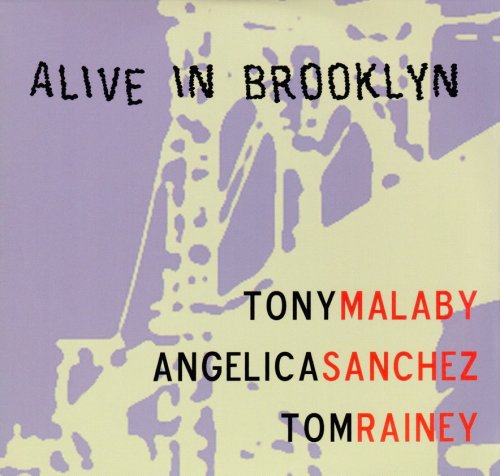
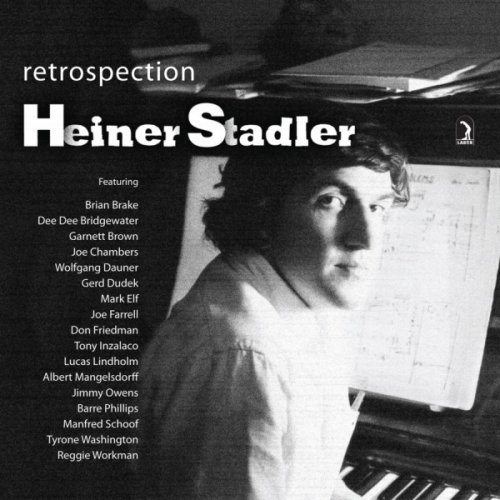
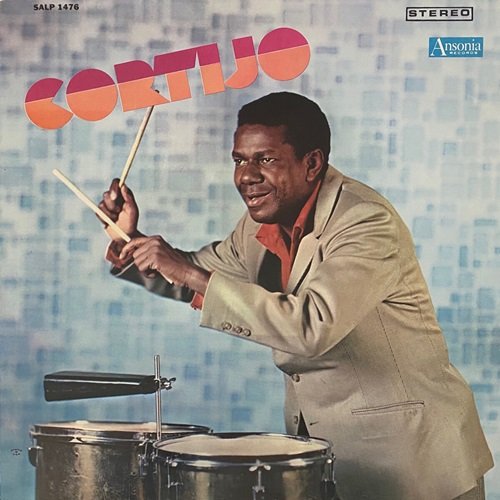
![The Voros Collective - Intercontinental Man (2026) [Hi-Res] The Voros Collective - Intercontinental Man (2026) [Hi-Res]](https://www.dibpic.com/uploads/posts/2026-03/1772344932_cover.jpg)
![Ying-Da Chen - Animal Triste (2026) [Hi-Res] Ying-Da Chen - Animal Triste (2026) [Hi-Res]](https://www.dibpic.com/uploads/posts/2026-03/1772673724_eioi3gteovgg7_600.jpg)

![Clifford Brown - Oldies Mix: Brownie (Remastered) (2025) [Hi-Res] Clifford Brown - Oldies Mix: Brownie (Remastered) (2025) [Hi-Res]](https://img.israbox.com/img/2026-03/03/2kclmln8ho6kq4e7w6k0ouqcm.jpg)
